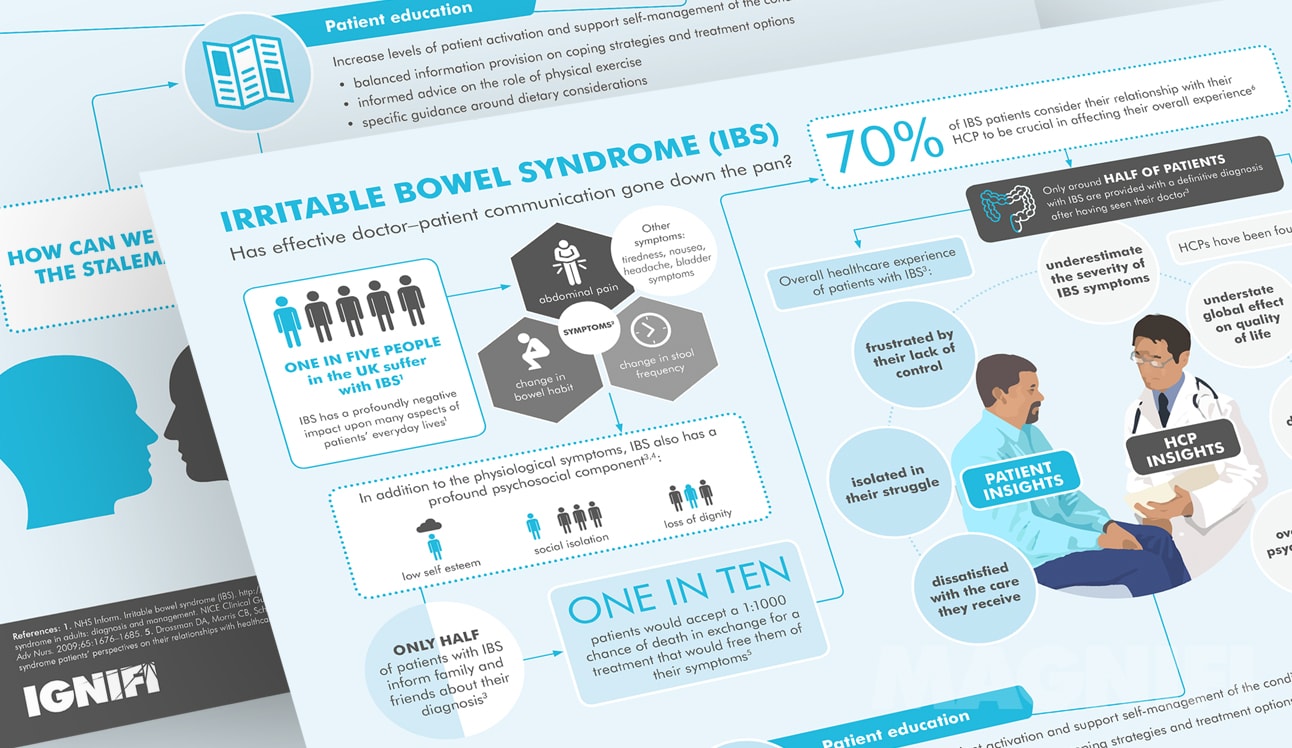
We’ve created this infographic to graphically summarise our exploration of healthcare experiences at the interface between patients with IBS and the HCPs responsible for their treatment.
Patients living with IBS exhibit poor medication adherence where there is a breakdown of the HCP-patient relationship, whilst also suffering from low self-efficacy and low self-esteem. 1
HCPs report being aware of the existence of guidelines to aid in diagnosis based on positive symptoms, however they are more accustomed to the ‘tentative and iterative’ approach taught at medical school. 2
At IGNIFI, we recognise the need for both patient and HCP education in this area, which for patients would increase their level of activation, empower them as participants in their healthcare journey and enable them to more effectively self-manage. For HCPs, improving awareness around the currently available clinical guidelines may help to reduce re-attendances by forming an appropriate diagnosis earlier, and sharing patient insights may improve the quality of the HCP-patient relationship in the context of IBS.
Finally, in raising the public awareness of IBS, we would hope to challenge the stigma facing patients and promote more open discussion of the condition.
We have summarised the main findings in this downloadable infographic. To learn more, why not have a look at this issue of MAGNIFI which covers the topic in more depth.
To continue the discussion on how improved engagement could support the management of IBS, contact us.








